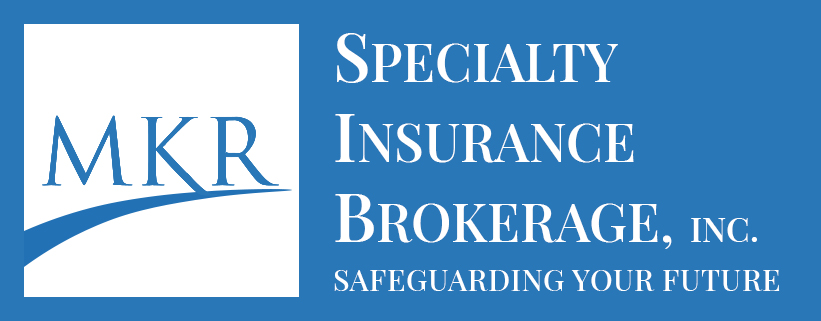Long Island City (LIC) is a bustling hub of commerce, home to a diverse array of businesses from restaurants and retail stores to tech startups and creative studios. While this vibrant atmosphere fosters growth and innovation, it also presents unique safety challenges, particularly when it comes to fire prevention. At MKR Specialty Insurance, we understand the importance of safeguarding your business from the devastating impact of fire. This article aims to provide essential fire safety tips and best practices tailored for LIC businesses, ensuring compliance and protecting your livelihood.
Understanding the Risks in LIC
LIC’s mix of older buildings and modern constructions, coupled with high occupancy rates and diverse business activities, creates a complex fire risk profile. Older buildings may lack modern fire suppression systems, while newer structures may house flammable materials or complex electrical systems. Dense urban environments mean fires can spread quickly, impacting neighboring businesses and residential areas. Recognizing these risks is the first step towards implementing effective fire safety measures.
Essential Fire Safety Best Practices:
- Regular Inspections and Maintenance:
- Schedule regular inspections of fire extinguishers, smoke detectors, sprinkler systems, and alarm systems.
- Ensure all equipment is in working order and up to date with required certifications.
- Maintain clear pathways to exits and emergency equipment.
- Electrical Safety:
- Avoid overloading electrical circuits.
- Regularly inspect electrical cords and outlets for damage.
- Use surge protectors for sensitive electronic equipment.
- Ensure proper ventilation for electrical equipment to prevent overheating.
- Flammable Materials Handling:
- Store flammable liquids and materials in designated, well-ventilated areas.
- Keep flammable materials away from heat sources and open flames.
- Dispose of flammable materials according to local regulations.
- Emergency Preparedness:
- Develop and regularly practice a fire evacuation plan.
- Ensure all employees are familiar with emergency procedures and evacuation routes.
- Designate a meeting point outside the building to account for all personnel.
- Conduct regular fire drills to reinforce emergency procedures.
- Fire Extinguishers:
- Install appropriate fire extinguishers in accessible locations throughout the premises.
- Train employees on how to properly use fire extinguishers.
- Regularly inspect and maintain fire extinguishers.
- Smoke Detectors and Alarm Systems:
- Install and maintain smoke detectors and fire alarm systems.
- Test smoke detectors and alarm systems regularly.
- Ensure alarm systems are connected to a monitoring service.
- Sprinkler Systems:
- If your building has a sprinkler system, ensure it is regularly inspected and maintained.
- Keep sprinkler heads clear of obstructions.
- Kitchen Safety (for restaurants and cafes):
- Install and maintain a commercial kitchen hood suppression system.
- Regularly clean grease traps and exhaust hoods.
- Never leave cooking equipment unattended.
- Train employees on proper kitchen safety procedures.
Compliance with Local Fire Codes:
LIC businesses must adhere to New York City’s fire codes and regulations. These codes cover various aspects of fire safety, including:
- Building Codes: Requirements for building construction, fire suppression systems, and emergency exits.
- Fire Department Regulations: Rules regarding fire prevention, inspections, and emergency response.
- Occupancy Regulations: Limits on the number of occupants allowed in a building or space.
It is crucial to stay updated on the latest fire codes and regulations and ensure your business is in compliance. The New York City Fire Department (FDNY) provides resources and information on fire safety regulations.
The Role of Insurance in Fire Protection:
While fire prevention is paramount, having adequate insurance coverage is also essential. Property insurance can help cover the costs of repairing or replacing damaged property, while business interruption insurance can help cover lost income during periods of closure.
MKR Specialty Insurance can help you assess your fire risks and develop a comprehensive insurance program that meets your specific needs. We can also provide guidance on fire safety best practices and compliance.
Creating a Culture of Fire Safety:
Fire safety is not just about compliance; it’s about creating a culture of safety within your business. Encourage employees to report potential hazards and participate in fire safety training. Regularly review and update your fire safety procedures to ensure they remain effective.
Conclusion:
Fire safety is a critical responsibility for all LIC businesses. By implementing the fire safety tips and best practices outlined in this article, you can significantly reduce the risk of fire and protect your business from devastating losses. Remember that prevention, preparedness, and compliance are key to creating a safe environment for your employees and customers.
Contact MKR Specialty Insurance today for a consultation and let us help you safeguard your business from fire risks.





